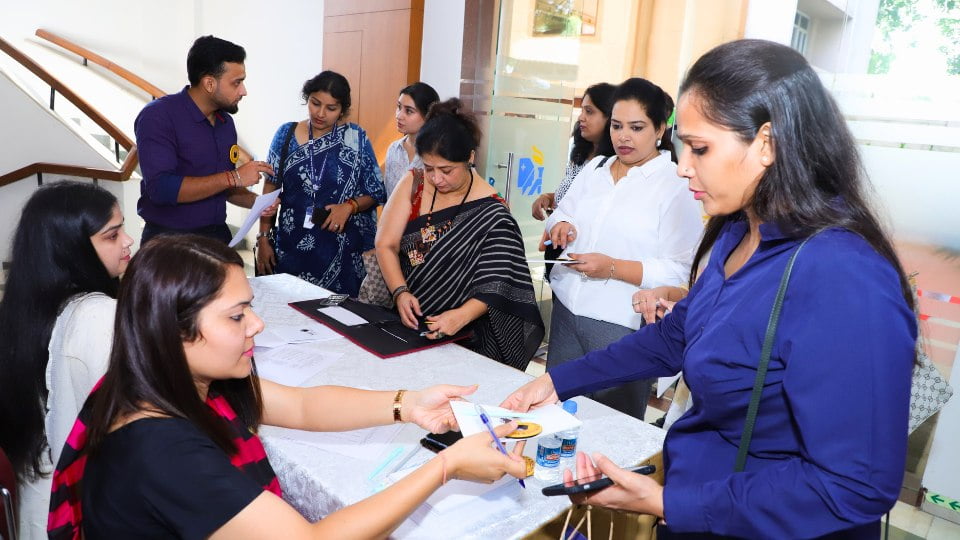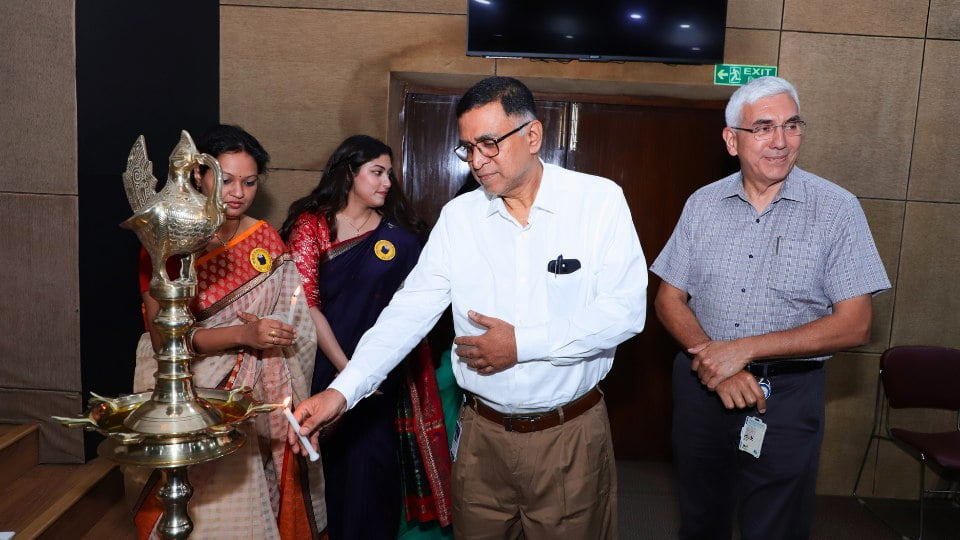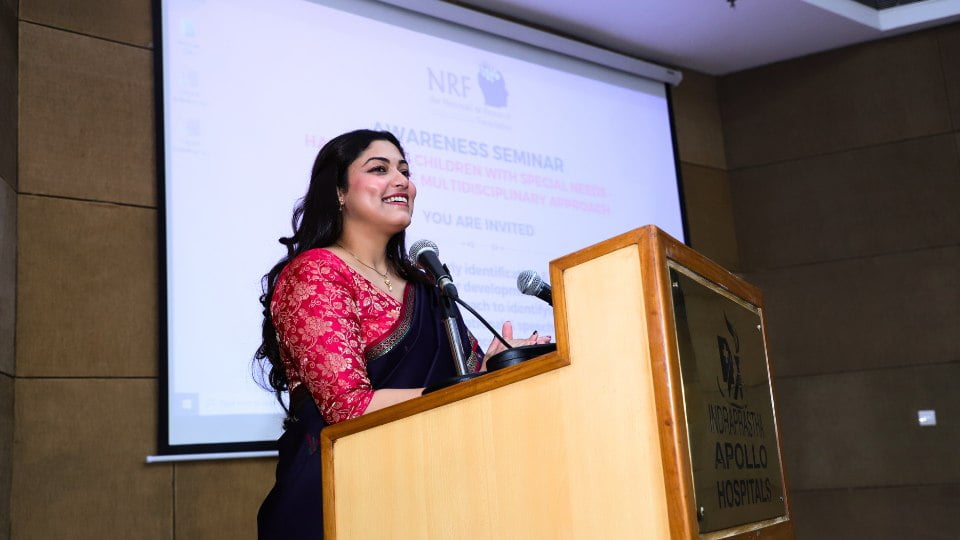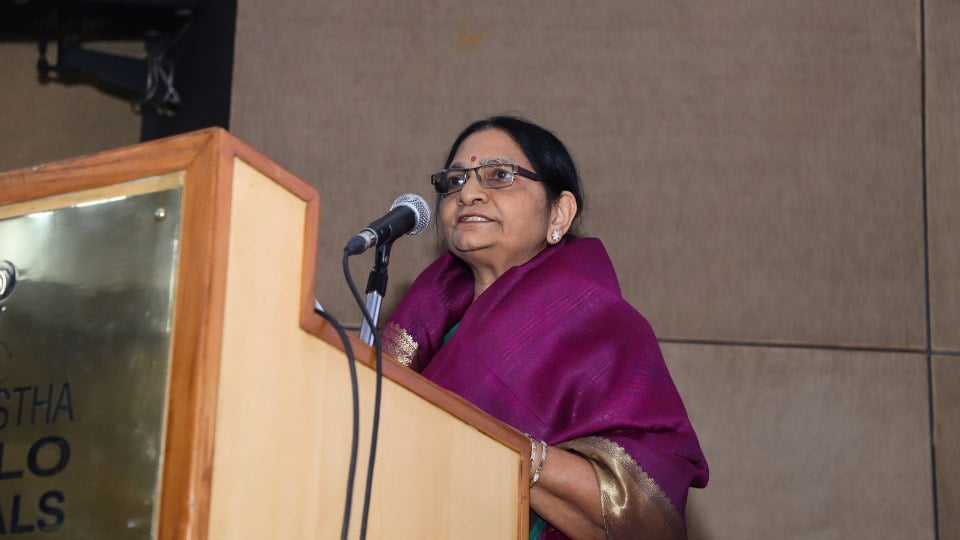The Neuroaid & Research Foundation (NRF) has been conducting awareness seminars under the aegis of NRF’s ‘Be Informed’ series for schools on various topics of interest over the past one year. On the basis of the feedback received, it was felt that holding a seminar on a larger scale for all Delhi Schools was the need of the hour. Cerebral Palsy Day, Occupational Therapy Day and Dyslexia Month are observed every October. Hence, October was zeroed, for an Awareness Seminar on a subject, not oft conducted.
For the first time, NRF organised a session on ‘Handling Children with Special Needs – A Multidisciplinary Approach’ at The Apollo Hospitals auditorium at Sarita Vihar, New Delhi on 14 October 2023 on a large platform. Principals and teachers of almost all private schools in Delhi and Noida were invited, besides professional and students working with children with special needs. The day-long seminar was aimed at empowering teachers and professionals to be able to identify children with special education needs (SEN) and guide them on the processes going forward.

The professionally manned Help Desk comprising senior physiotherapist Dr Ankita Singh supported by our new recruits Dr Rahul Thakur and Dr Nidhi Dalor guided and assisted the participants through the day. Close to a hundred participants attended the session.



Our Chief Guest, Mr P Shivakumar, Managing Director of Apollo Hospitals Delhi graced the occasion and lit the ceremonial lamp along with our founder trustees, Dr N Subramanian, Dr Kuldeep Singh, Dr Mukul Varma, Rajalakshmi Chandru and speakers of the day.

Dr Nidhi Kashyap, our senior therapist introduced the speakers, effectively moderating the various sessions, and ensuring that all written and verbal queries from participants were meaningfully responded to.

Dr Priya Jain, Consultant Neurodevelopmental Paediatrics, speaking on ‘Demystifying Neurodevelopmental Disorders’, elaborated on the process of growth and development, and explained in detail as to ‘how’ and ‘why’ developmental delays occur in general and neurodevelopmental delays in particular. Dr Priya stressed on the need for early identification as a primary requisite for habilitating children with SEN through evidence-based intervention strategies. She presented a checklist of red flags vis-à-vis the three most common conditions seen in a school setup i.e., Attention Deficit Hyperactive Disorder (ADHD), Autism Spectrum Disorder (ASD) and Learning Disorders (LD) and cautioned against labelling a child without proper diagnosis. She concluded her talk giving an overview of the composition of core members of the Early Intervention Team along with available government programs and facilities for early identification and intervention.

Dr Jyotsna Wadhwa, Consultant Psychologist, presented a capsule on the various schooling options available for children with SEN. While emphasizing on ‘inclusion’ being a prime solution, Dr Jyotsna explained the elements that formed the basis of a successful ‘inclusion’ of a child with SEN in a school set-up. As she decoded the steps involved in the process of early identification in a school set-up (due to below-average academic performance or behavioural concerns), Dr Jyotsna emphasized the role of ‘attitudes’ as one of the two most important foundation blocks, the other being resources. Dr Jyotsna also drew attention to the importance of schooling for a child with SEN at the primary, middle and senior school levels, while giving reasons for possible dropouts at each level.

Dr Monika Kundu Srivastava, NRF’s Lead Occupational Therapist, opened her session with an ice-breaker question. She took the participants through the nuances of occupational therapy as an enabling profession that aims at improving ‘functional independence’ in a child with SEN. Dr Monika spoke at length about the core problem areas that a child with neurodevelopmental disorders might present with. These included the sensory processing system, gross & fine motor skills, balance & coordination, cognition & perception, play, domain, and activities of daily living (ADLs). She outlined the basic approach towards a child with SEN and through visuals, explained the various activities, strategies and techniques employed during a typical OT session. She concluded by stressing on the importance of time management, exposures through experiences and most importantly, the role of family members in successfully habilitating a child with SEN.

Session One can be summarised with the quote ‘Let’s Discover our Children’s Abilities before we Label their Disabilities’.
Session Two commenced after a sumptuous lunch.
Dr Sugandha Verma, Senior OT, carried forward the Role of Occupational Therapy in school set-ups. Her presentation was a visual extravaganza with several pictures that explored the various options available for children with SEN, to provide them access and cater for reasonable accommodation within and outside the classroom. She catered to all disabilities including physical, visual, and hearing impairments, besides children with neurodevelopmental disorders. The section dedicated to the role of assistive technology was the highlight of her session.

Ms Stuti Sharma, Senior Speech Therapist, extensively covered all issues concerning hearing, speech & language disorders. An initial overview of the role of an Audiologist & Speech/Language Pathologist in a school set-up offered valuable insights. Ms Stuti engaged the participants actively through a series of videos that brought out key issues of concern. She spoke at length on the importance of sensitizing educators and classmates (peers) to the needs of a child with SEN. A section dedicated to the need and types of Augmentative and Alternative Communication (AAC) devices was a novel concept to many participants.

Consultant Special Educator, Ms Rajni Nagar’s spontaneous and hands-on approach to guiding children with SEN in the school in general and classroom in particular, from a special educator’s perspective, was well received. An overview of Individualised Education Program (IEP), importance of a shadow teacher and handling a child with SEN in class were detailed with examples.

Dr Jyotsna Wadhwa, Consultant Psychologist, provided detailed insights into behavioural issues seen in children with SEN. She elaborated on the causes and remedial approaches usually followed for problem behaviours in a school set-up. Behaviour modification techniques were explained with examples and real-life situations. Dr Jyotsna was assisted by Ms Mihika Mittal, an intern from NIPCCD, Delhi.
Session Two could be summarized as, ‘Acceptance is the First Step to Inclusion; Modifications & Reasonable Accommodation ensure it’.
The most engaging seminar came to a close after an interactive session with the participants putting forth a number of questions and sharing many concerns. Our experienced team answered their queries with professionalism. Written feedback was taken through a Google Feedback Form shared with participants on their respective email addresses, in order to gauge the relevance and effectiveness of the content shared, and invite suggestions for further improvement going forward. Almost all participants were very appreciative of the one day session, calling it an eye-opener, and expressed their desire to be part of all such events in future.
Mrs Rajalakshmi Chandru closed the day’s proceedings with an Expression of Gratitude to the management of Indraprastha Apollo Hospitals for the excellent infrastructure, to all participants, speakers and support teams that worked behind the scenes to make the event most meaningful.



